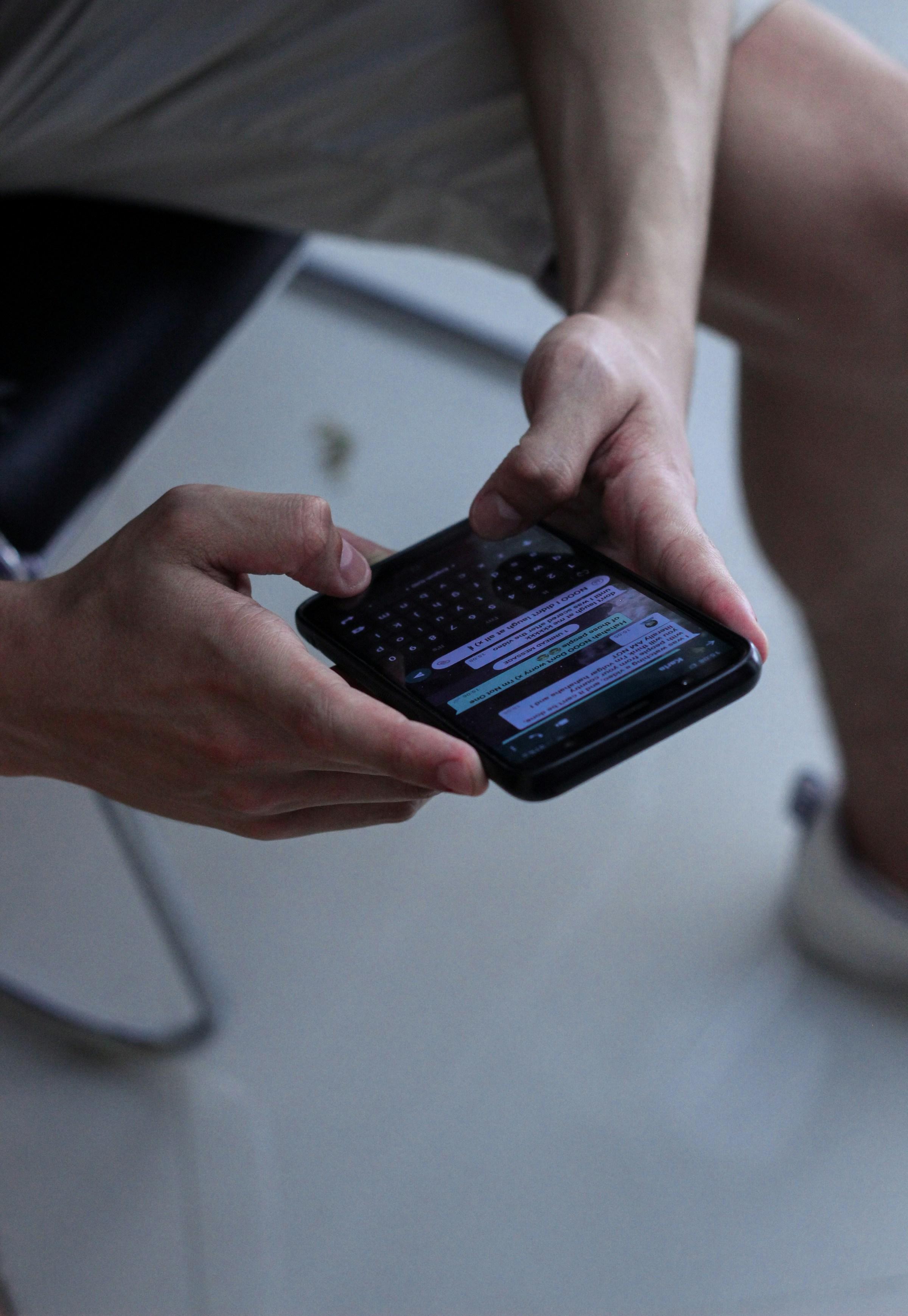When a conversation ends without a goodbye, the body is the first to notice. It hears the absence before the mind finds a name for it. The ear waits for a sound that never arrives. The hand reaches for a phone that stays still. The heart keeps time with an expectation that has lost its partner. This is the quiet storm of ghosting, a modern silence that feels both private and public at once. It is private because no one else can see how many times you check your screen. It is public because the whole world exists inside the same devices that hold your unanswered messages. What follows is not only a tangle of thoughts. It is a full body response that reshapes sleep, appetite, focus, and trust. To understand how ghosting affects mental health, we have to start with the body, then move through memory, then reach the daily rooms where we live, work, and care for ourselves.
The nervous system reads sudden silence as a kind of ongoing alarm. Human beings are wired to seek patterns. A person texts at a certain hour. A call arrives on certain days. These moments create a rhythm. When the rhythm breaks without warning, the body leans forward to catch the missed beat. The lean turns into bracing. The bracing becomes a habit. Within a few days the mind is busy with questions while the stomach turns small. Coffee tastes sharp. Music feels wrong. The morning routine gains new steps that no one asked for. Check the phone in bed, then at the sink, then by the doorway, then in the lift. Each check builds a small spike of hope followed by a small drop of disappointment. These spikes and drops turn the day into a hallway of flickering lights. The body learns to expect the flicker more than the light.
In that flicker, the mind tries to fix the scene by changing the story. Instead of describing the silence as a choice made by another person, it becomes easier to rearrange the furniture of self worth. Maybe you said too much. Maybe you said too little. Maybe your last photo was wrong. Maybe your last joke missed. Suddenly the sofa of confidence has moved, the table of boundaries sits at a strange angle, the lamp of perspective casts shadows that make the room look smaller than it is. The shift is subtle, then it becomes a new blueprint. Sitting still feels like a chore. Sleeping turns into negotiations with a mind that keeps opening drawers you would rather leave closed. Eating asks for a permission slip. Work gets done, but in the way a plant survives in low light. The plant does not die. It also does not bloom.
Ghosting can stir old memories that are not about romance or friendship at all. If childhood taught you that silence meant safety, the sudden quiet may feel familiar and even seductive. If childhood taught you that silence meant punishment, the quiet can feel like a door slamming inside your chest. Either way, the nervous system remembers patterns more faithfully than the conscious mind. It believes its job is to protect you by raising alarms. Since there is no clear event to process and no closure to file away, the alarm rings at odd hours. The mind is like a careful librarian who can shelve any book with a last chapter. Ghosting places an unfinished book on the shelf and leaves it there to rattle every time you walk past.
Shame likes empty spaces. It enters where explanations are missing and hangs curtains that block the light. Shame says you are the reason for the silence. Shame asks you to keep the house dark so you never notice that your space can be warm and beautiful. This is one way ghosting grows larger than a single relationship. It does not only invade your inbox. It walks into your kitchen, your evening routine, your calendar. It tries to turn your week into a waiting room. You are not broken if you feel this shift. You are responding to a loss of design. The line between connection and quiet was removed without your consent. The mind loves edges. Without edges it presses and presses, searching for a frame that makes sense.
Loneliness arrives through unsealed edges. It does not knock. It floats in, the way humid air makes a room feel heavy even when nothing has changed. You find it in the moment you would have shared a joke. You find it at breakfast when your first impulse is to reach for a phone instead of your breath. The brain attaches the missing person to unrelated objects because association is one of its oldest tools. A certain mug becomes a portal. A song becomes an argument with the past. Even the sound of the elevator doors can feel like a memory. This is not obsession. It is the brain trying to group data points so that life makes sense again. Without a healthy exit, the grouping becomes a loop. Loops exhaust the body. Exhaustion shortens the distance between calm and panic. Anxiety sneaks in and begins to redirect attention away from what nourishes you and toward constant maintenance.
Grief is an honest word here. Some people avoid it because it sounds too large for an unanswered text, but grief is about the shape of a bond, not only its ceremony. The cycle moves through familiar stations. Denial visits when you plan what you will say after the message arrives. Anger visits when you argue with the ceiling as if it can argue back. Bargaining writes the careful note you almost send at midnight. Sadness sits at the edge of the bed and counts hours. Acceptance shows up as a small permission to make tea without consulting your phone. None of these stations are linear. You can feel steady at noon and undone at five. The body is not a calendar. It is a tide that responds to weather. Ghosting is sudden weather.
Because the wound is shaped like an unfinished sentence, care has to be shaped like a full stop. Endings are not punishments. Endings are boundaries that tell the body it can rest. When the world removes a humane ending, you can install humane edges. One edge might be a nightly ritual where the phone lives in another room for two hours. That gap teaches your nervous system that silence can be chosen, not only imposed. Another edge might be a small tray on a desk where messages to yourself can land before you decide to send them to anyone else. Writing down the impulse to reach out and giving it a place to rest is not avoidance. It is dignity. It slows the spiral without shaming the feeling that started it.
Rituals that honor the senses help more than rules that scold the heart. Peel an orange and let your kitchen smell like morning even when it is afternoon. Boil ginger with lemon and watch steam lift like a soft curtain. Fold a towel and notice how the edges align. Water a plant and listen for the quiet hollow sound that means the soil is ready to receive. These acts are not cute distractions. They are ballast. When conversation disappears, sensation can keep you present. Presence is not forced optimism. It is a simple practice of naming what is here. This is the chair. This is the cup. This is the breath I can feel. This is the minute I can touch. A nervous system that can touch the present has fewer reasons to sprint into imagined futures where the missing person finally answers.
If sleep is the room that suffers most, treat it with ceremony. Change the sheets to mark a new script. Dim the lights earlier than usual. Place a small card by the bed that says you do not need to check anything until morning. Build a bridge from wake to rest by reading a few pages aloud in your own voice. The body knows your voice. It is one of its original anchors. If your mind begins to rehash conversations, try a mental scene that accepts the need for closure and offers a substitute. Imagine a library cart returning unshelved thoughts to storage one by one. Imagine a shoreline where the tide goes out with every exhale and brings back only sand with every inhale. You are not tricking yourself. You are giving your body an ending to the day, even if a person did not give you an ending to the story.
Appetite often shrinks during anxious seasons. Kitchen rituals can coax it back without pressure. A simple broth that simmers for half an hour gives you a clock to lean on. Toast with olive oil and salt offers comfort without effort. A peeled apple sliced thin can feel kinder to a tense stomach than a whole fruit. This is not about clean eating or wellness slogans. It is about speaking gently to a system that has been on alert for days. Hydration becomes a small mercy rather than a chore when you place one glass by the sink and another by the bed, then refill both at set moments that do not require decision making. These details matter because decision fatigue arrives early when the mind is searching for answers that are not available.
Sound shapes the atmosphere of a home. Silence that you choose is different from silence that was dropped on you. Reclaim the soundtrack of your space with intention. Start the day with instrumental warmth and let the playlist grow brighter as time passes. Let birdsong play during breakfast so the edges of morning soften. Read a short poem aloud while you wait for tea. If you live with others, explain that certain hours are not for autopsies of the relationship that has gone quiet. You can tell the truth without telling the whole story. You are restoring a practice of quiet that nourishes focus.
Movement helps a body that has been pacing through thoughts without arriving anywhere. This is not the season to prove anything at the gym unless it feels good to do so. What helps most is rhythm. Ten minutes of floor stretches after work tell the muscles that they can let go. A slow walk around the block where you name five textures you see gives the mind a task that is gentle and finite. Carrying laundry with deliberate breath sounds odd, but the combination of load, lift, and finish can calm a system that craves completion. This is not about achievement. It is about showing your body that it can move from one point to another without rushing to chase what is missing.
The social room of life needs careful redesign after ghosting. Invitations can feel risky. Friends can feel like homework. Choose one person. Tell them you do not want advice or analysis. You want company. Meet in a place with texture so the world can hold some of the conversation for you. A park bench. A cafe with soft chairs. A market aisle where the smell of herbs is part of the visit. If you are not ready to meet, ask for voice notes that do not require a reply. Sound can be an antidote to the tyranny of text. The human voice returns the body to the truth that relationships are made of breath and timing, not only words on a screen.
Work tends to suffer in a quiet way. Focus splits, deadlines press in, and guilt arrives to multiply everything. It helps to treat your desk like a sink that needs a clean basin before any dishwashing can begin. Wipe it. Place one sticky note where your eyes land. Write three tasks only. Set a timer for twenty minutes. Work until the bell rings. Then close your eyes for sixty seconds with one hand on your belly and one hand on your chest. This loop is not indulgent. It is regulation. When your mind wanders to the missing message, thank it for caring, then look at the note again. Repetition is not boring in this context. It is merciful structure.
There is a deeper layer to the question of how ghosting affects mental health beyond the first week of ache. It teaches the system to distrust its own reading of reality. If a door once vanished without warning, the body begins to scan every hallway for vanishing doors. This does not only touch romantic life. It touches creative projects, new friendships, and fresh starts at work. It says do not begin because endings are unsafe. The antidote is not to become hard. The antidote is to become deliberate. Give endings to your day. Give edges to your attention. Place a few useful, beautiful objects where doubt used to sit. Let your hands learn that not everything disappears without a word.
There is also the matter of being the one who went quiet. Some people reading this will recognize the shape of avoidance from the other side. If you pulled away, you may carry your own shame, or you may carry the fear that any attempt to explain will cause more harm. The same principles apply. Endings are humane, even imperfect ones. If you cannot offer a postscript to the person you left, write one for yourself. Name why you stopped. Name what you wish you had done. Name what you will do differently the next time you feel the urge to vanish. Place that paragraph somewhere private. Let it become a small rule you honor so that your self respect has a firm place to stand.
A small doorway practice can mark the shift from waiting to living. Stand at your entrance with your shoes on. Step inside and take them off. Say out loud that you are choosing presence in these rooms. Light a match and blow it out once to mark the moment. Do this each evening for a week. Then add music. Then add a glass of water placed by the sink and a towel folded once. These details seem ordinary. They are the opposite of ordinary in a season when the mind loops on what is missing. They make a story you can enter without fear. They teach your nervous system that not every threshold leads to loss.
The body is a house that learns from how we treat it. When someone exits without a goodbye, it is rational to feel disoriented. It is human to ache. It is normal to replay moments in search of a missing why. You do not need to perform resilience. You can curate it. Choose rooms that help you regulate. Choose textures that make staying easier than spiraling. Choose sounds that remind you that mornings still arrive. Choose food that whispers rather than shouts. Choose people who can sit with you without forcing a lesson. The ache will not vanish on command, but it will soften when the house begins to feel tended again.
What we repeat becomes how we live. Ghosting tries to hand you a loop made of absence. You can write a different loop. It starts with a glass of water on a clean table. It continues with a phone turned face down while you breathe. It grows when you give evening an ending again. The mind needs doors that open and doors that close. Give yourself those doors. Let your home and your routines teach your nervous system what closure feels like, one small ritual at a time. Over days and weeks the echo fades. Your inner rooms begin to sound like you again. The house you live in returns to you, and you can trust your steps inside it.














